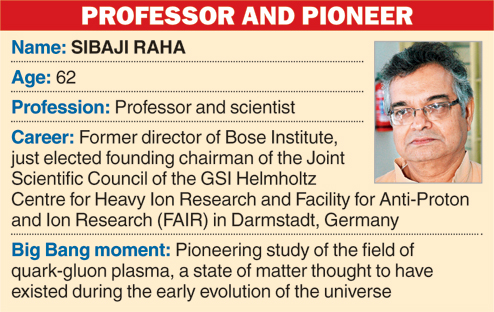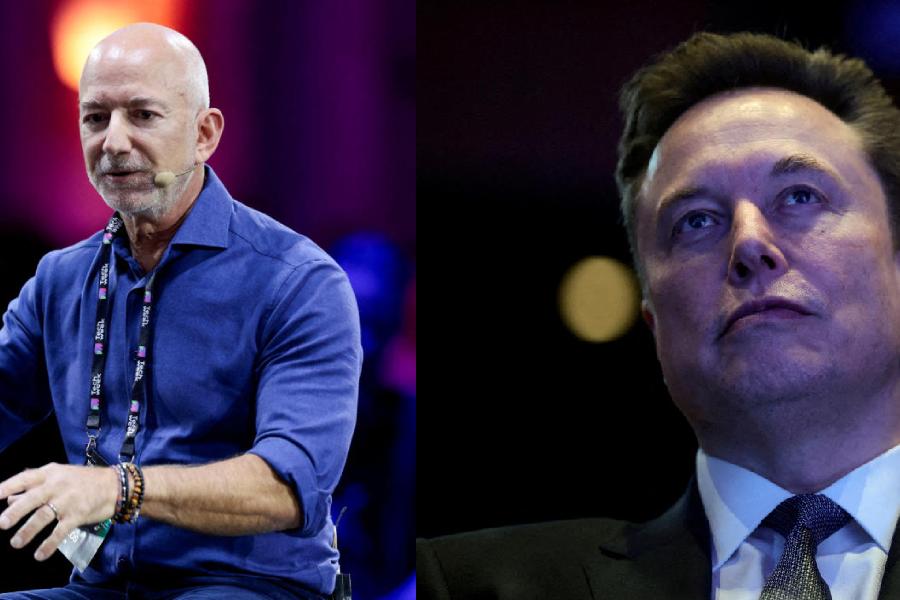
A scientist from Calcutta has been chosen to chair an international advisory committee for one of the world's largest basic science experiments in Germany.
Sibaji Raha, former director of the prestigious Bose Institute, has been unanimously elected the founding chairman of the Joint Scientific Council of the GSI Helmholtz Centre for Heavy Ion Research and the upcoming Facility for Anti-Proton and Ion Research (FAIR) in Darmstadt, Germany.
The 1.2-billion euro facility will be the site for several basic science experiments to study the structure of matter and the evolution of the universe since the Big Bang.
"While CERN discovered the Higgs Boson, a particle that explains just five per cent of the mass of matter, FAIR will study the origin of the rest of the mass. It will also study the creation of heavy elements in stars and also the interiors of planets," said Subhasis Chattopadhyay, programme director of the Indo-FAIR Coordination Centre.
Raha will lead scientists from the US, France, Italy, Poland, Japan, Sweden, South Africa, Germany, Russia, Spain, Austria and India in the advisory council.
The department of science and technology, which had announced the news first on Twitter, termed Raha's appointment "a singular honour being bestowed by the international scientific community".
Physicist Bikash Sinha said of Raha's election: "Sibaji Raha is an eminent scientist. His appointment will give a tremendous boost to Indian science and scientists."
Raha, who completed his PhD from the University of Texas, Austin, has worked with the likes of John Wheeler, a world renowned theoretical physicist.
Early in his career, he had played a leading role in the creation of the field of quark-gluon plasma.
Raha is excited to head the scientific committee of the GSI and FAIR. He said: "It will be a challenging task and I will be dealing with world-renowned physicists, who are also my peers. Being at the head of such cutting-edge research, I will have the scope to see and assess the many possibilities of research for our community of scientists in India and be able to advise them."
While Calcutta scientists had contributed to the discovery of the Higgs-Boson at CERN too, being part of the Indian team designing and making in-kind contributions for the new state-of-the-art accelerator complex in Germany is the real deal.
Raha said: "This is the first time Indians will help build the actual accelerator at FAIR. Our involvement is at an intensive level here, much more than our role at CERN, where we were doing some tests for the support system."
Two prototypes of power converters designed by scientists at the Variable Electron Cyclotron Centre (VECC) in Salt Lake, along with those from other labs, were shipped to Germany for FAIR in the first week of this month.
Nine countries, including India, are involved in setting up the high-energy physics accelerator, which will be located at the 40-year-old GSI laboratory in Darmstadt.
Germany is bearing 70 per cent of the project cost and the rest is to be shared by the other countries. India is contributing three per cent of the project cost in kind. This includes designing, building and supplying magnets, vacuum chambers, power cables, power converters and beam stoppers.
If you know of a Calcuttan like Sibaji Raha who is making us proud, tell ttmetro@abpmail.com










